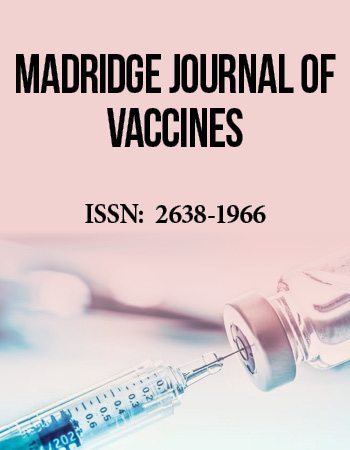International Conference on Vaccines
Feb 20-22, 2017 | Baltimore, USA
Chimpanzee adenovirus vector-based avian influenza vaccine completely protects mice against lethal challenge
Chinese Academy of Sciences, China
Highly pathogenic avian influenzaviruses such as H5N1, H7N9, may give rise to the next influenza pandemic due to the reassortment and mutation of theirgenomes. The clinical use of seasonal influenza vaccinesincludes inactivated influenza vaccine and live attenuated influenza vaccine cannot protect the human from the heterogenous influenza viruses infection, such as the avian origined influenza viruses.Thus the development of avian influenza vaccineis in critical demands. Chimpanzee adenovirus (Ad) vectors are a novel type of vaccine carriers that share the advantages of human serotype Ad vectors but without being affected by pre-existing human neutralizing antibody to the vaccine vector, and have been considered as promising vaccine vectors due to their high immunogenicity, broad cell tropism, high gene expression, good genetic stability, etc.Various vaccine candidates based on chimpanzee Ad vectors have been developed for infectious diseases and cancers. Based on replication-deficient chimpanzee Ad vectors, AdC7 and AdC68, we generated two novel vaccine candidates for H5N1 and H7N9, termed as AdC7-H5HA and AdC68-H7HA,which expressing H5N1Hemagglutinin (HA) and H7N9 HA, respectively. After tested in mice, both vaccine candidatessignificantly reduced the virus loads and pathological lesions in the lung tissues, and conferred complete protections against lethal challenge by homologous viruses. Mechanistically, both AdC7-H5HA and AdC68-H7HA induced HA-specific humoral and cell-mediated immune responses in mice. Sera transfer experiment and T cell depletion experiment demonstrated that neutralizing antibodies as well as HA-specific CD8+ T cell responses play important roles in protection. In conclusion, our study suggests that chimpanzee Ad vector expressing influenza virus HA may represent a promising vaccine candidate for avian influenza viruses and other influenzavirus subtypes.
Biography:
Dr. Dongming Zhou is a professor and the head of Anti-infection Immunity and Vaccine Research Unit at Institute Pasteur of Shanghai, Chinese Academy of Sciences. His research interest is to generate noveladenovirus as gene transfer vehicles, and to establish platformsfor vaccine development or molecular therapy based on recombinant adenovirus, andto explore the mechanisms involved in novel vaccines or gene therapy methods. Dr. Zhou received his M.D. from Suzhou Medical College in 1993, and his M.P.H. from Hunan Medical University in 1998, and his Ph.D. from Central South University in 2001. He completed his postdoc training in immunology at the Wistar Institute in2006, and then worked as a staff scientist at the Wistar Institute in the period of 2006 to 2011. He has published over 30 peer-review articles and applied 10 US and Chinese patents.


